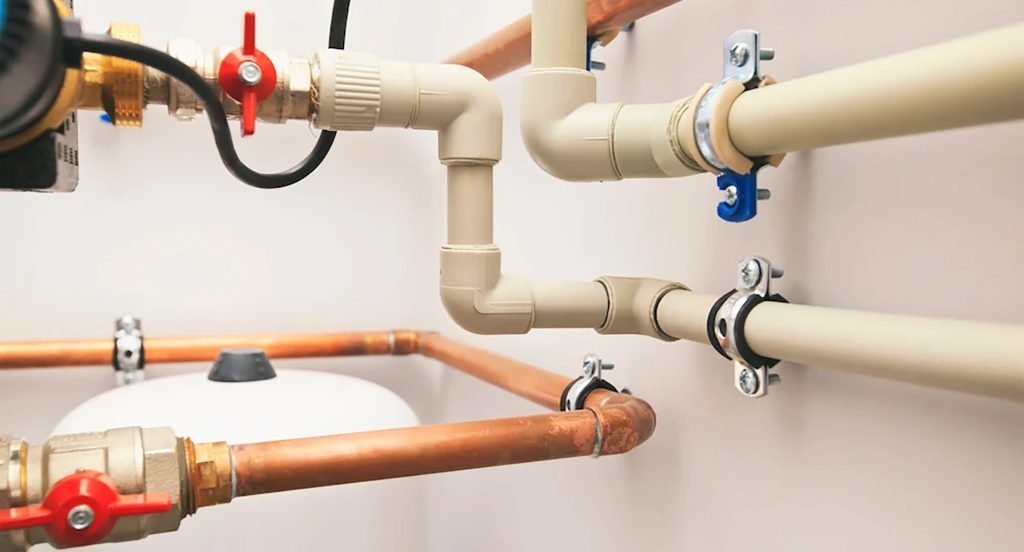Why Do My Water Pipes Make Noise?
Most water pipes do their job quietly, moving pressure and temperature shifts without a sound. That’s why it’s so jarring when they suddenly start making noise. Some sounds are harmless. Others are signs that something needs attention. Knowing the difference can help you avoid damage, save money, and enjoy a quieter home.
What’s Causing That Hammering Sound?
One of the most common noises is a loud banging right after turning off a faucet or appliance. This is known as a water hammer. It happens when rushing water comes to a sudden stop and slams against the shut-off valve or pipe walls.
To fix it, start by resetting the air chambers in your plumbing system. Turn off the main water valve, open all the faucets in your home to drain the lines, and then switch the water back on. If the noise doesn’t go away, inspect the supply lines. Loose or unsecured pipes can amplify water movement and should be clipped or strapped in place. Still hearing the racket? A plumber may recommend installing a water surge arrester to absorb the pressure.

Why Are My Pipes Whistling?
Whistling noises can come from a worn washer, loose screw, or a dirty aerator inside a faucet. If the sound is isolated to one or two fixtures, replacing those small parts often solves the issue. Toilets that whistle briefly after flushing usually need a new ballcock valve or float adjustment. If the whistling is coming from multiple sources, there may be buildup in the supply system or a worn-out pressure regulator. A licensed plumber can run diagnostics and suggest the right fix.
What About Vibrations or Thrumming?
Vibrating or thrumming pipes often mean the water pressure is too high. You can test this with a pressure gauge screwed onto a faucet. Readings above 80 psi may damage pipes or fixtures and should be corrected by installing a pressure regulator.
Other Strange Noises
Squeaks and rubbing sounds are often caused by copper pipes expanding against framing when hot water passes through. If walls or ceilings are already closed up, the easiest workaround is lowering your water heater temperature a few degrees. This reduces how much the metal expands, which may be enough to stop the noise.
Dripping or ticking sounds are trickier. Sometimes it’s thermal expansion. Other times, it’s a leak. One way to test is to run very hot water into a sink and immediately flush a nearby toilet. If you hear a sharp tick or pop afterward, expansion is likely the culprit. If the noise continues at random or grows worse, it’s best to bring in a professional.
Noisy pipes don’t always mean disaster, but they should never be ignored. If something sounds off, call Drain It Plumbing. We’ll inspect the system, pinpoint the cause, and get things running smoothly again. Quiet, reliable plumbing is just one visit away.
Copyright © 2025 Drain It Plumbing